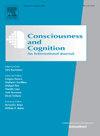Stimulus-response binding and retrieval operates independently of contingency awareness: A mega-analysis
IF 2
3区 心理学
Q2 PSYCHOLOGY, EXPERIMENTAL
引用次数: 0
Abstract
There is an ongoing debate about the role of top-down influences on episodic binding and retrieval processes. The Binding and Retrieval in Action Control (BRAC) framework postulates that both, binding and retrieval, are modulated by top-down processes, such as awareness and instructions (Frings et al., 2020). To test this assumption, we conducted a mega-analysis in which we reanalyzed data from four contingency learning experiments (total N = 859). Contingency awareness was assessed in all experiments. Furthermore, in two experiments, contingency awareness was experimentally manipulated by instructing participants about the existing contingencies. Results show that both binding and retrieval neither depend on nor are modulated by higher-order processes such as contingency knowledge or awareness of stimulus–response contingencies (measured and manipulated). In sum, our findings suggest that stimulus–response binding and retrieval is an automatic cognitive process that operates unconsciously and independently of top-down influences such as contingency knowledge and awareness.
刺激-反应结合和检索独立于偶然性意识运作:大型分析
关于自上而下的影响在情景结合和检索过程中的作用一直存在争论。动作控制中的绑定和检索(BRAC)框架假设,绑定和检索都是由自上而下的过程(如意识和指令)调节的(Frings等,2020)。为了验证这一假设,我们进行了一项大型分析,重新分析了四个偶然性学习实验(总N = 859)的数据。所有实验均评估应急意识。此外,在两个实验中,通过向被试告知已存在的偶然性来操纵偶然性意识。结果表明,结合和检索既不依赖于也不受高阶过程的调节,如偶然性知识或刺激-反应偶然性意识(测量和操纵)。总之,我们的研究结果表明,刺激-反应结合和检索是一个无意识的自动认知过程,独立于自上而下的影响,如偶然性知识和意识。
本文章由计算机程序翻译,如有差异,请以英文原文为准。
求助全文
约1分钟内获得全文
求助全文
来源期刊

Consciousness and Cognition
PSYCHOLOGY, EXPERIMENTAL-
CiteScore
4.30
自引率
8.30%
发文量
123
期刊介绍:
Consciousness and Cognition: An International Journal provides a forum for a natural-science approach to the issues of consciousness, voluntary control, and self. The journal features empirical research (in the form of regular articles and short reports) and theoretical articles. Integrative theoretical and critical literature reviews, and tutorial reviews are also published. The journal aims to be both scientifically rigorous and open to novel contributions.
 求助内容:
求助内容: 应助结果提醒方式:
应助结果提醒方式:


